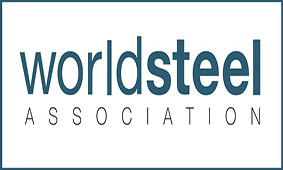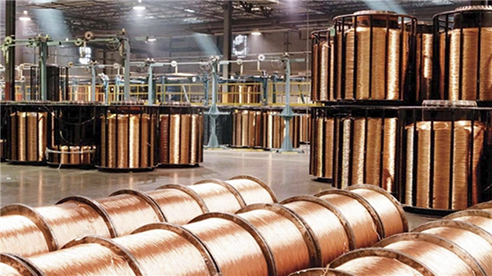
Iran’s Metal Exports Rising Despite US Sanctions

Amid Tehran’s efforts to broaden its access to new sources of hard currency at a time of increased American pressure on the oil industry, the MIMT said in a report published on Sunday that exports to China of major metals and mining products had reached a total of $1.568 billion in value terms between late March and late October this year, a surge of 150 percent compared to the same period in 2018.
It said the top data-x-items on the list of exports of various metals to China included iron ore and concentrates on $673 million, copper cathode on $408 million, steel ingot on $207 million, copper ore and concentrates on $127 million and zinc ingot on $57 million.
The report said that the total value of exports of metals and mining products from Iran to various countries in the seven-month period ending on October 22, 2019 had stood at $4.631 billion, an increase of 6.16 percent year-on-year.
Iraq trailed China in the list of major export destinations followed by Indonesia, Thailand and Turkey, said the MIMT, adding that countries like Afghanistan, the United Arab Emirates, Oman, Pakistan and Ghana had imported more than $100 million worth of Iranian metals and mining products over the seven-month period.
The value of shipments to Indonesia and Pakistan saw significant increases of 135 and 396 percent, respectively, while Turkey imported 13 percent more metals from Iran over the period, said the report.
The data are the latest to come from a series of reports suggesting that Iran’s trade of metals is thriving despite a series of American sanctions that have specifically targeted the metals and mining sector since earlier this year.
The bans on Iran’s trade of metals were enacted in May, exactly a year after the United States withdrew from a major international agreement on Iran’s nuclear program and began imposing various economic sanctions on the country.
Experts believe the sanctions have largely failed to halt Iran’s lucrative business of metals as it has become increasingly difficult to identify and target the shipments that are mostly exported via the third countries.
Last month, Iranian President Hassan Rouhani officially opened Baft Steel mill with a production capacity of over 1.5 million tons a year, in a bid to further raise the country’s metals industry and tap into its vast reserves of metals and minerals.
Iran is currently among the 10 leading producers of steel in the world. International surveys have shown that the growth of steel output in Iran for the past three years has outpaced a global rate of 3.5 percent. That has come despite a direct ban imposed by Washington on the country’s trade of metals since May this year.
Back in February, Iran started the construction for a giant steel mill in the country’s Northwestern province of East Azerbaijhajn where a budget of 1.1 trillion rials ($26 million) had been allocated for the project by the private sector.
On January 26, the World Steel Association (WSA) announced that Iran ranked 10th among crude steel producers in the world in 2018 with 25 million tons of production, with a 17.72% rise compared with 2017.
Iran has pushed aside Italy, Taiwan and Ukraine to become the 10th biggest producer of crude steel in the world for the year 2018.
The WSA has put the global crude steel production for the year 2018 at 1,808.6 million tons (Mt), which shows a 4.6% increase compared to 2017.
According to the report, Iran’s crude steel industry has remained in good shape despite the US sanctions.
Iran produced 25.0 Mt in 2018, showing a 17.72% increase compared to 2017 (21.2 Mt).
Iran’s share of global crude steel production has been estimated at 1.38% for the year 2018.
Based on the report, the second to ninth places went to India, Japan, the US, South Korea, Russia, Germany, Turkey and Brazil with 106.46 million tons, 104.33 million tons, 86.7 million tons, 72.46 million tons, 71.68 million tons, 42.44 million tons, 37.31 million tons and 34.73 million tons respectively.
According to the Islamic Republic's Vision Plan, the country's total steel production capacity is to hit 55 million tons a year by 2025, with exports figure expected to reach 10-15 million tons.



Trump weighs using $2 billion in CHIPS Act funding for critical minerals

Codelco cuts 2025 copper forecast after El Teniente mine collapse

Electra converts debt, launches $30M raise to jumpstart stalled cobalt refinery

Barrick’s Reko Diq in line for $410M ADB backing

Abcourt readies Sleeping Giant mill to pour first gold since 2014

Nevada army depot to serve as base for first US strategic minerals stockpile

SQM boosts lithium supply plans as prices flick higher

Viridis unveils 200Mt initial reserve for Brazil rare earth project

Tailings could meet much of US critical mineral demand – study

Kyrgyzstan kicks off underground gold mining at Kumtor

Kyrgyzstan kicks off underground gold mining at Kumtor

KoBold Metals granted lithium exploration rights in Congo

Freeport Indonesia to wrap up Gresik plant repairs by early September

Energy Fuels soars on Vulcan Elements partnership

Northern Dynasty sticks to proposal in battle to lift Pebble mine veto

Giustra-backed mining firm teams up with informal miners in Colombia

Critical Metals signs agreement to supply rare earth to US government-funded facility

China extends rare earth controls to imported material

Galan Lithium proceeds with $13M financing for Argentina project

Kyrgyzstan kicks off underground gold mining at Kumtor

Freeport Indonesia to wrap up Gresik plant repairs by early September

Energy Fuels soars on Vulcan Elements partnership

Northern Dynasty sticks to proposal in battle to lift Pebble mine veto

Giustra-backed mining firm teams up with informal miners in Colombia

Critical Metals signs agreement to supply rare earth to US government-funded facility

China extends rare earth controls to imported material

Galan Lithium proceeds with $13M financing for Argentina project

Silver price touches $39 as market weighs rate cut outlook

















